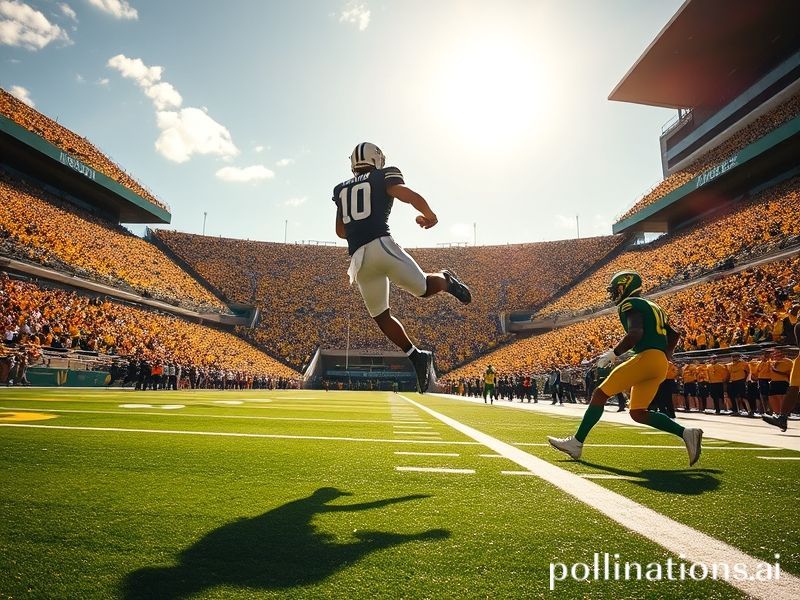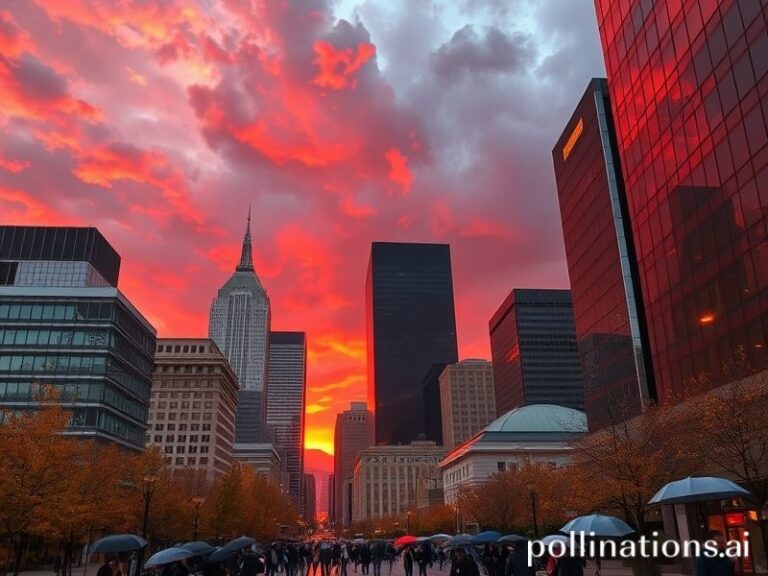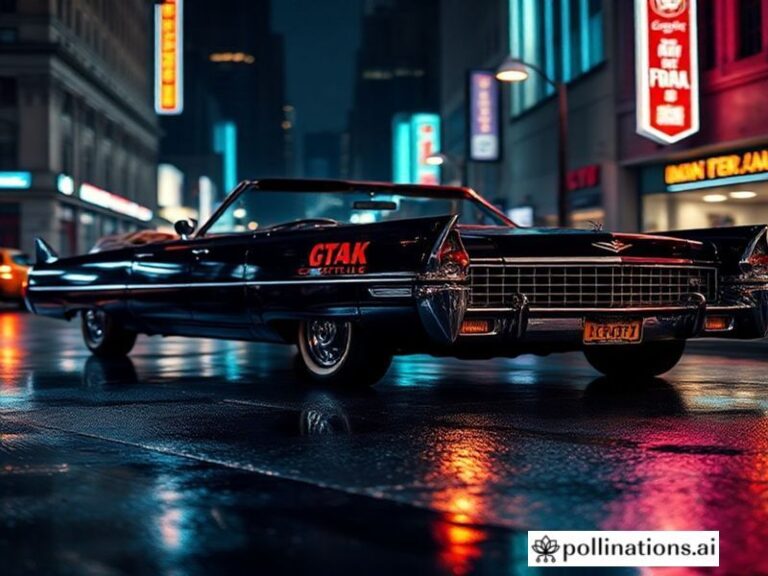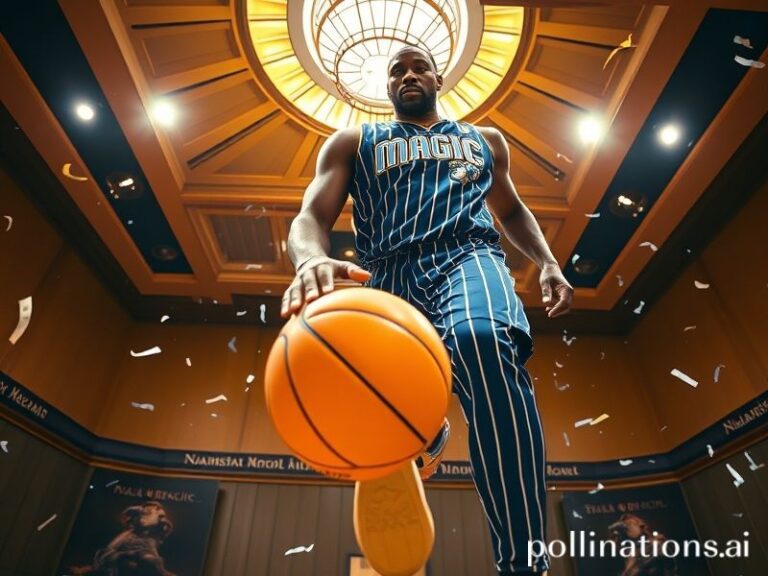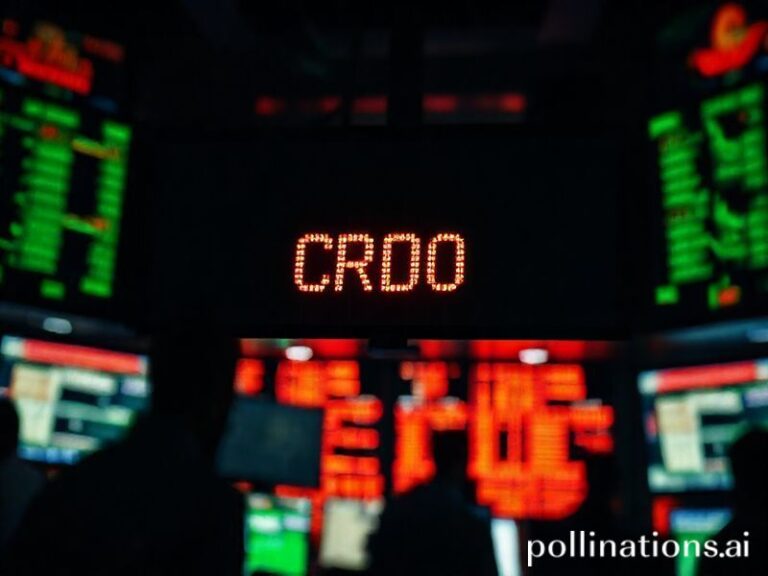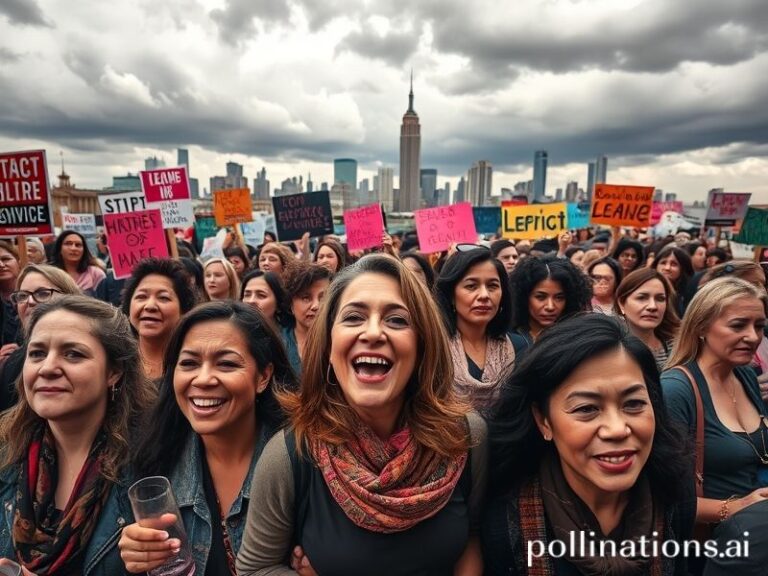Penn State vs Oregon: A Global Parable of Late-Stage Capitalism in Shoulder Pads
Penn State vs Oregon: A Parable of Two Empires in the Age of Collapse
By Our Correspondent Somewhere Over the Pacific, Still Jet-lagged and Philosophical
Somewhere between the ghost malls of Shenzhen and the ever-shrinking glaciers of Patagonia, two American universities—Penn State and Oregon—will collide this weekend on a rectangle of turf in Indianapolis. To the untrained eye, it’s a mid-season college-football skirmish. To the rest of the planet, it’s a tidy morality play about late-stage capitalism, climate anxiety, and the irresistible human urge to choreograph violence while wearing corporate decals.
First, the geopolitical scoreboard. Penn State arrives brandishing the industrial muscle of Pennsylvania’s rust belt, a region that once forged the steel now recycled into Chinese skyscrapers. Oregon counters with the eco-utopian chic of Portland, a city where baristas hold master’s degrees and compost bins have stronger civic pride than most nation-states. One side’s mascot is a mountain lion—sleek, predatory, unbothered by your LinkedIn updates. The other’s is a duck—deceptively cute, capable of flight, and contractually obligated to Nike. The symbolism is so on-the-nose it could only be American: the feral past versus the branded future, clawing for recruits in the same dwindling revenue pool.
Global bookmakers—now as integral to world finance as the Bundesbank—have installed Oregon as a narrow favorite, mostly because their offense resembles a fintech startup: agile, data-driven, and allergic to long-term commitments. Penn State, meanwhile, plays like a state-owned enterprise—grinding, occasionally brilliant, perpetually haunted by compliance audits. If you squint, you can see the entire 21st-century economy in microcosm: disruptive app culture meets legacy infrastructure, each convinced the other is a rounding error on the spreadsheet of history.
The view from abroad is predictably amused. In London, where football involves actual feet, analysts note that the combined annual budget of both athletic departments exceeds the GDP of Kiribati—an island nation currently negotiating the purchase of higher ground in Fiji. Tokyo sports columnists, still mourning the cancellation of the 2020 Olympics’ public orgy of soft power, watch the pageantry with the detached envy of a samurai studying TikTok dances. Meanwhile, Lagos entrepreneurs livestream the game to hawker stalls, overlaying play-by-play with real-time odds on which booster will be indicted first. The world watches because the world always watches America’s subconscious leak onto a scoreboard; it’s cheaper than Netflix and twice as revealing.
Of course, the athletes themselves are children of the polycrisis: climate refugees from Florida hurricanes moonlight as defensive backs; offensive linemen calculate NIL deals in renminbi to hedge against a dollar that wobbles like a freshman kicker. Their jerseys are stitched in Bangladesh, their highlight reels monetized by Singaporean algorithms, and their post-game meals delivered by DoorDash drivers who might moonlight as cryptobro evangelists in Jakarta. The supply chain of glory is as fragile as the Arctic ice shelf—one container-ship blockage away from existential dread.
Then there’s the matter of legacy. Penn State fans still genuflect to the sepia-toned ghost of Joe Paterno, a coach whose statue was removed for reasons Wikipedia politely euphemizes. Oregon fans genuflect to Phil Knight, a billionaire whose corporate behemoth once used sweatshops before discovering that morality is just another product line. Somewhere in the stands, a freshman wearing recycled-plastic sneakers will raise a cardboard sign reading “THERE IS NO PLANET B,” blissfully unaware that the sign itself was printed on Amazon Basics cardstock. The irony is biodegradable; the profits are not.
When the final whistle blows, the victor will claim a trophy roughly the size of a Fiat 500 and exactly as useful. The loser will retreat to film rooms where analysts splice drone footage like Pentagon war rooms. Both teams will upload sanitized hype videos to TikTok, soundtracked by whichever indie band sold its soul fastest. And the planet, indifferent, will keep warming at 1.2 degrees per century—proof that even in overtime, the house always wins.
Conclusion? In a world tilting toward autarky and AI-generated populism, Penn State vs Oregon offers the comforting illusion that some conflicts can still be settled by 22 people chasing an oblong ball. It’s not peace in our time, but it’s cheaper than a proxy war and pairs nicely with domestic beer. Until the oceans rise and the stadiums float away like Venetian palazzos, we’ll take our parables where we can get them—preferably with guacamole and a side of existential gallows humor.

